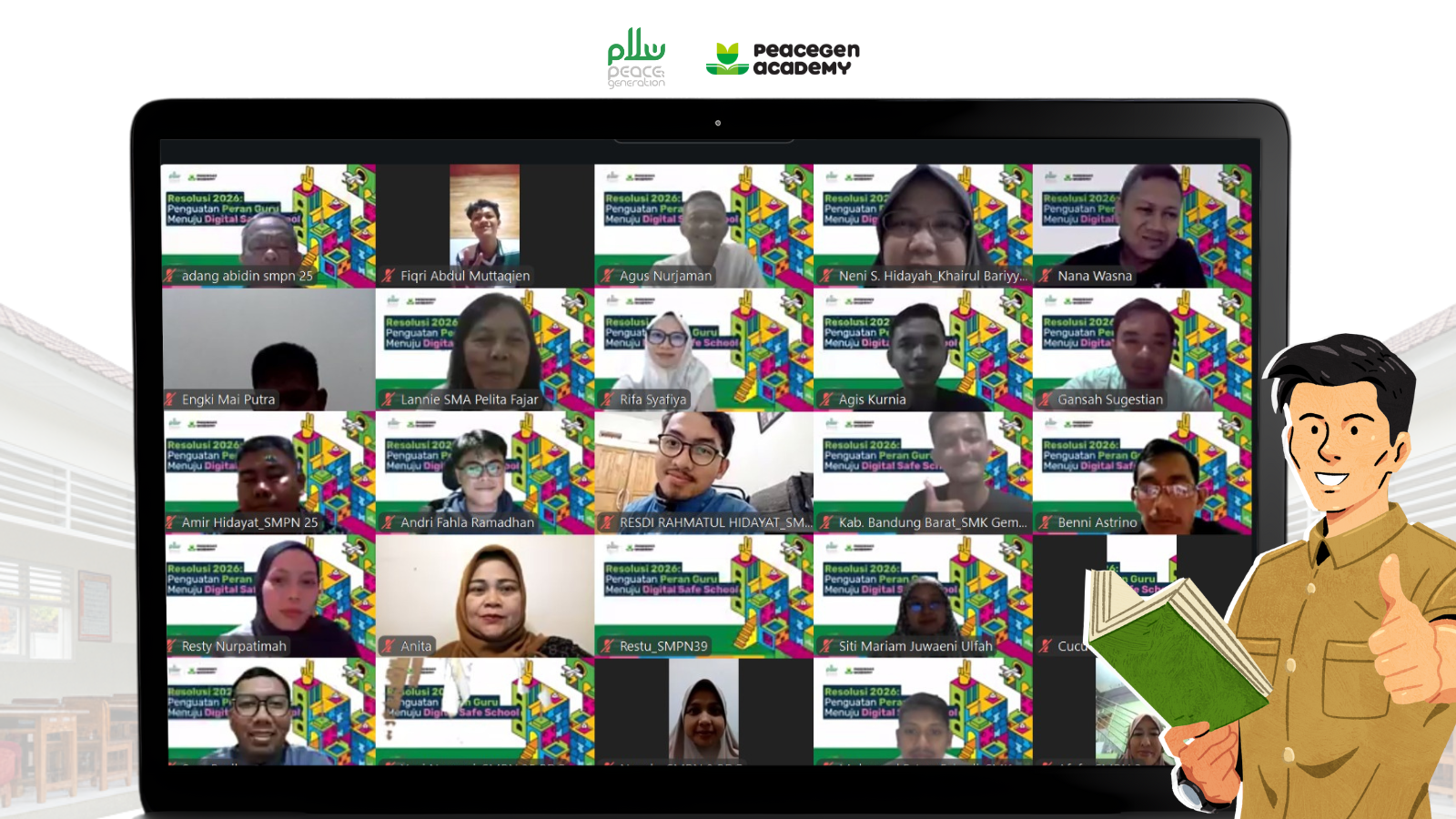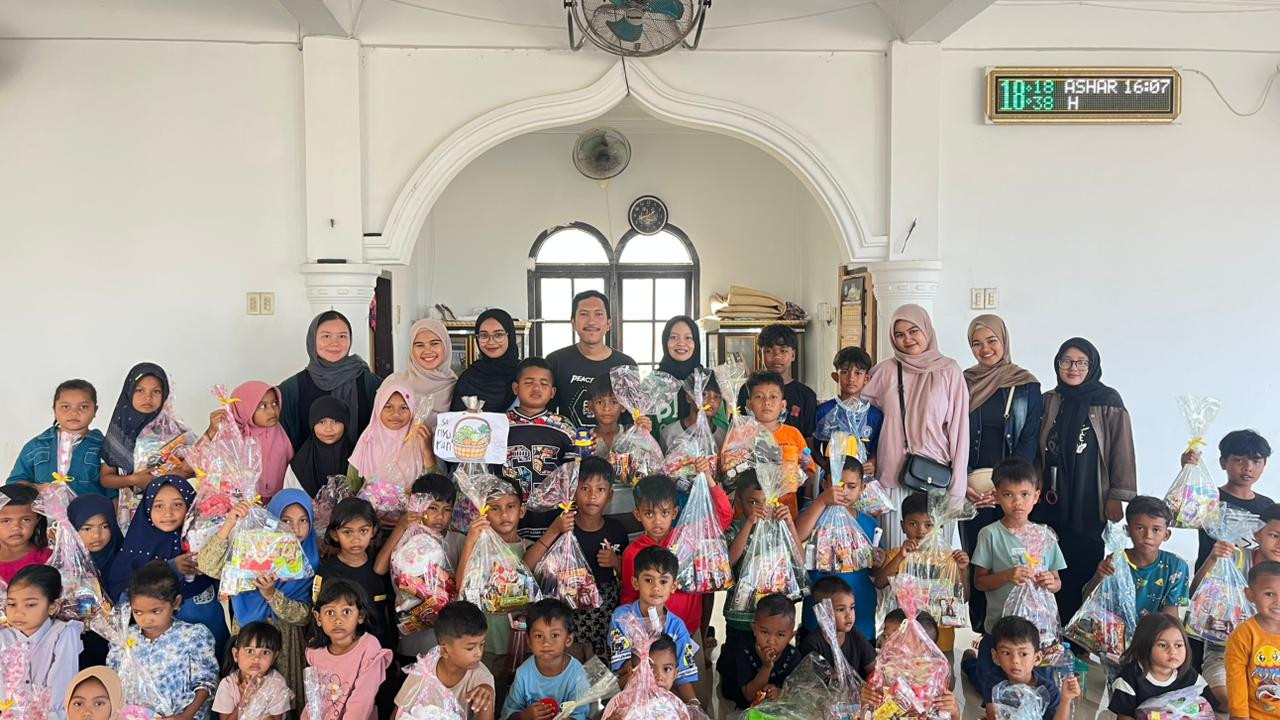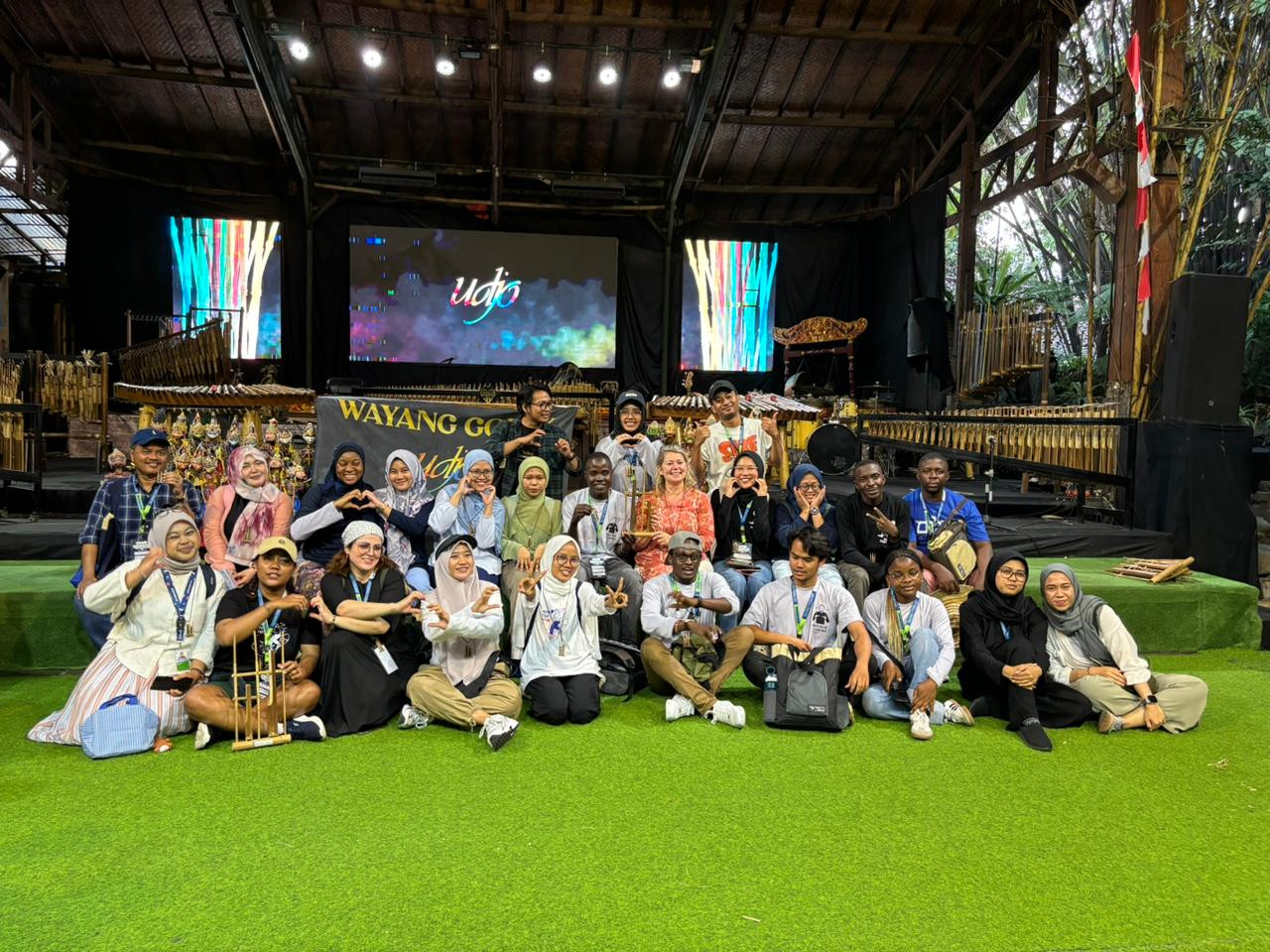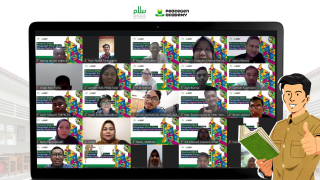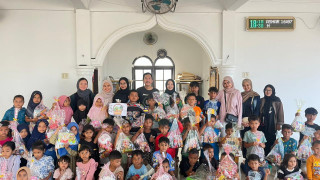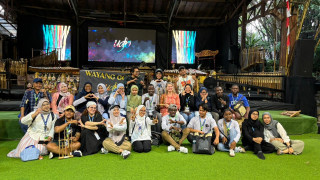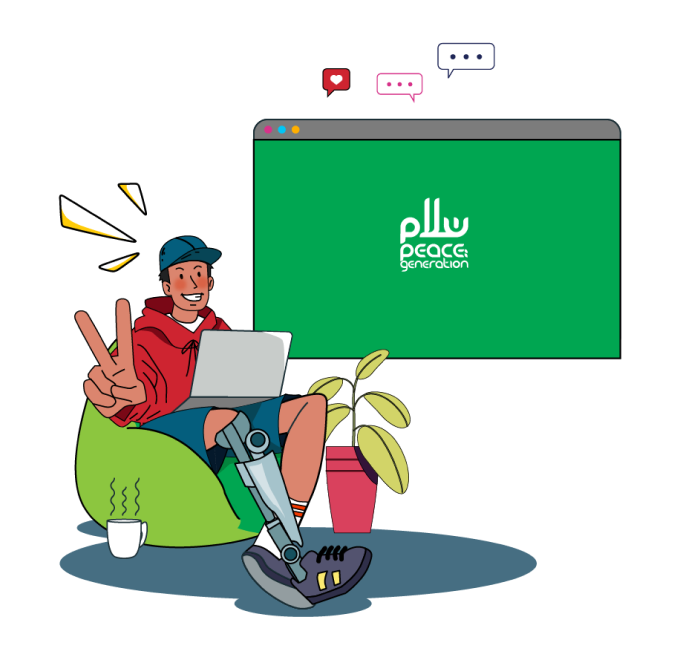Creating a Resilient Cyber Generation, Kaspersky and PeaceGen Hold Digital Literacy Workshop for Hundreds of Students and Teachers in West Java

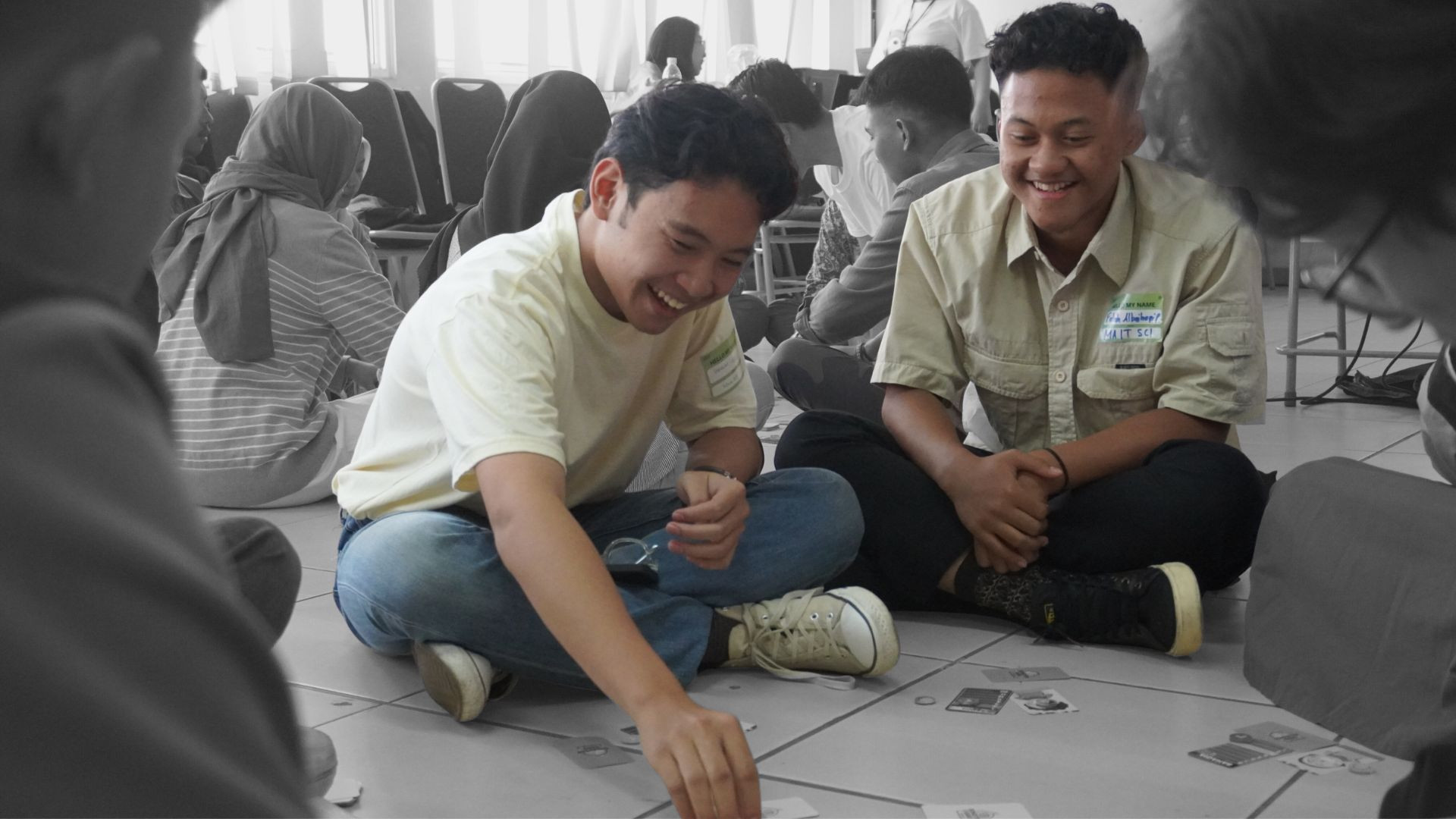
PeaceGen.Id – In the midst of the inevitable digital era, where young people spend an average of seven hours a day in cyberspace, cybersecurity challenges have become a crucial issue that demands serious attention. These security issues also occur within schools, such as uneven digital literacy knowledge and cyberbullying among students. Responding to this urgency, Kaspersky collaborated with PeaceGeneration Indonesia to organise a Digital Literacy Workshop: Creating a Safe, Comfortable, and Exciting Learning Environment. The event, which targeted hundreds of students and teachers from various public and private junior high schools and high schools in West Java, was held as a concrete step towards building a safer digital ecosystem.
The workshop was held intensively for two days at two strategic locations in the city of Bandung. The first session for junior high school/MTs students took place enthusiastically on Friday, 10 October 2025, at Yahya Christian School. The following day, Saturday, 11 October 2025, it was the turn of senior high school/vocational school/Islamic senior high school students and teachers to fill the hall of Pelita Fajar School to attend a similar session.
This initiative received appreciation and full support from the local government. In his speech, Dr. Edy Suparjoto, M.Pd., Acting Secretary of the West Java Education Agency, emphasised the importance of utilising technology for educational purposes. “Digitalisation is for learning, not just for social media. The West Java Education Agency greatly appreciates this initiative and hopes that such events will continue in the future to equip our generation,” he said.
Guided by expert trainers from Kaspersky, Trishia Octaviano and Defi Nofitra, participants were taken through a series of interactive ‘missions’ designed to build personal and communal digital resilience.
Building a Personal Shield with Cyber Hygiene
The opening session immediately brought participants to the heart of the matter through an edutainment video titled "Dont Know? Kasih No”. This video effectively illustrated cybercrime modus operandi such as phishing, malicious links, and pirated websites. The facilitators then sparked an in-depth discussion, revealing that 54% of cyber security incidents stem from user error, which is manipulated through social engineering techniques that prey on negligence and emotions.
Various types of online fraud were analysed one by one:
Baca juga: Teacher’s Story: How Rega Nugraha Prevents Digital Threats in Islamic Boarding Schools
-
Phishing: Attempts to steal sensitive data by posing as a trusted institution.
-
Smishing: Fraud via text messages (SMS/WA) that lure victims into clicking on links containing malware or fake forms.
-
Doxing: The cruel act of spreading someone's personal information without permission for the purpose of harassing or intimidating them.
-
Malware: Malicious software designed to damage devices and steal data.
As a fundamental solution, the concept of Cyber Hygiene is introduced. This is not just a theory, but a series of practical habits to maintain security in the virtual world. Participants were taught how to create strong passwords of at least 10-12 characters with a combination of upper and lower case letters, numbers, and symbols, and the importance of enabling Two-Factor Authentication (2FA) as an additional layer of security. This session became particularly relevant when participants were invited to directly check for potential data leaks in their accounts using an interactive QR scanner.
As stated by Alfie, a student at Rumah Belajar Semi Palar, when he gained awareness about digital literacy, particularly phishing and how to create a good password.
"I learned about the importance of digital literacy, such as phishing and digital fraud. So, in my opinion, the most exciting part was creating a password, where we had to create a sentence and replace it with symbols to make it difficult to guess. My next step at school is to spread the word about Kaspersky, like about bullying and making safe passwords, because I've seen my friends' passwords are super easy. And hopefully, they'll also know how to handle scams, so they don't rush to click on links."
Sharpening Critical Thinking Skills Against the Wave of Disinformation
After the break, the session continued with the mission of sharpening critical thinking skills, an essential skill for surviving in the midst of a flood of information. The concepts of priming and framing were explained as ways in which the media packages information to shape public perception. Participants learned to distinguish between misinformation (incorrect information spread unintentionally) and disinformation (false information deliberately created and spread to deceive).
This made Ms Fia, a teacher at Rajawali Junior High School, aware of the types of false information and how to prevent them.
“I learned new things that I had never heard of before, such as misinformation and disinformation, which are similar but not the same, and occur in the digital space. I checked whether my email had been hacked and how strong my password was, and it turned out that my password was very weak. I only realised this after participating in this workshop.”
Baca juga: 150+ Teachers Become Agents of Change to Create Digital Safe Schools with PeaceGen
As a primary tool, lateral reading techniques were introduced: a verification method that does not rely on a single source, but rather opens new tabs to check claims from various credible sources. Sophisticated threats such as deepfakes, highly realistic video and audio manipulation technologies, were also demonstrated, equipping participants with the ability to recognise visual and audio irregularities.
Becoming a Digital Upstander Through Interactive Simulation
The Digital Literacy workshop concluded with PeaceGen applying creative media, namely the educational board game ‘Semester Baru’ (New Semester). PeaceGen created a safe simulation space for participants to understand the dynamics of bullying. This game effectively visualises the concept of power imbalance, which is at the root of cyberbullying.
Through role-playing, participants directly experience how a joke can turn into bullying and the psychological impact on the victim. This session emphasises that in the digital world, everyone has a choice: to be a passive bystander or an active upstander. To that end, four practical steps to becoming an upstander (4D) are introduced:
-
Direct: Confront the perpetrator directly and firmly if it is safe to do so.
-
Distract: Divert attention to defuse the situation.
-
Delegate: Report the incident to the authorities, such as teachers or social media platforms.
-
Delay: Approach and provide support to the victim after the incident.
This experience helped Ms Bunga, a teacher at SMAN 19 Bandung, in mapping out cyberbullying management and digital literacy at school.
“The New Semester board game was exciting and really fun. As teachers, we discovered that giving this board game to the children in our class would increase their awareness of cyberbullying, such as the short-term and long-term consequences they need to be aware of.”
The workshop concluded with an action plan session, where each school was encouraged to design its own anti-cyberbullying campaign. The strategic collaboration between Kaspersky's technological expertise and PeaceGen's humanistic approach has proven successful in creating a programme that is not only informative but also transformative, equipping hundreds of change agents to create a safer, more comfortable, and more enjoyable digital space in West Java.
Teachers and students are expected to be able to apply the new knowledge about digital security provided by Kaspersky and to be able to apply the knowledge about cyberbullying prevention shared by PeaceGen through board games.
This is in line with what was conveyed by Himalaya, a student representative from SMA Welas Asih, when he realised the importance of always being aware of digital security.
“I learned many new things here, one of which is how to anticipate the use of our devices so that we can be more aware in the future and become digitally literate.”
Visit us on Instagram @peacegenid for more information about similar activities.
